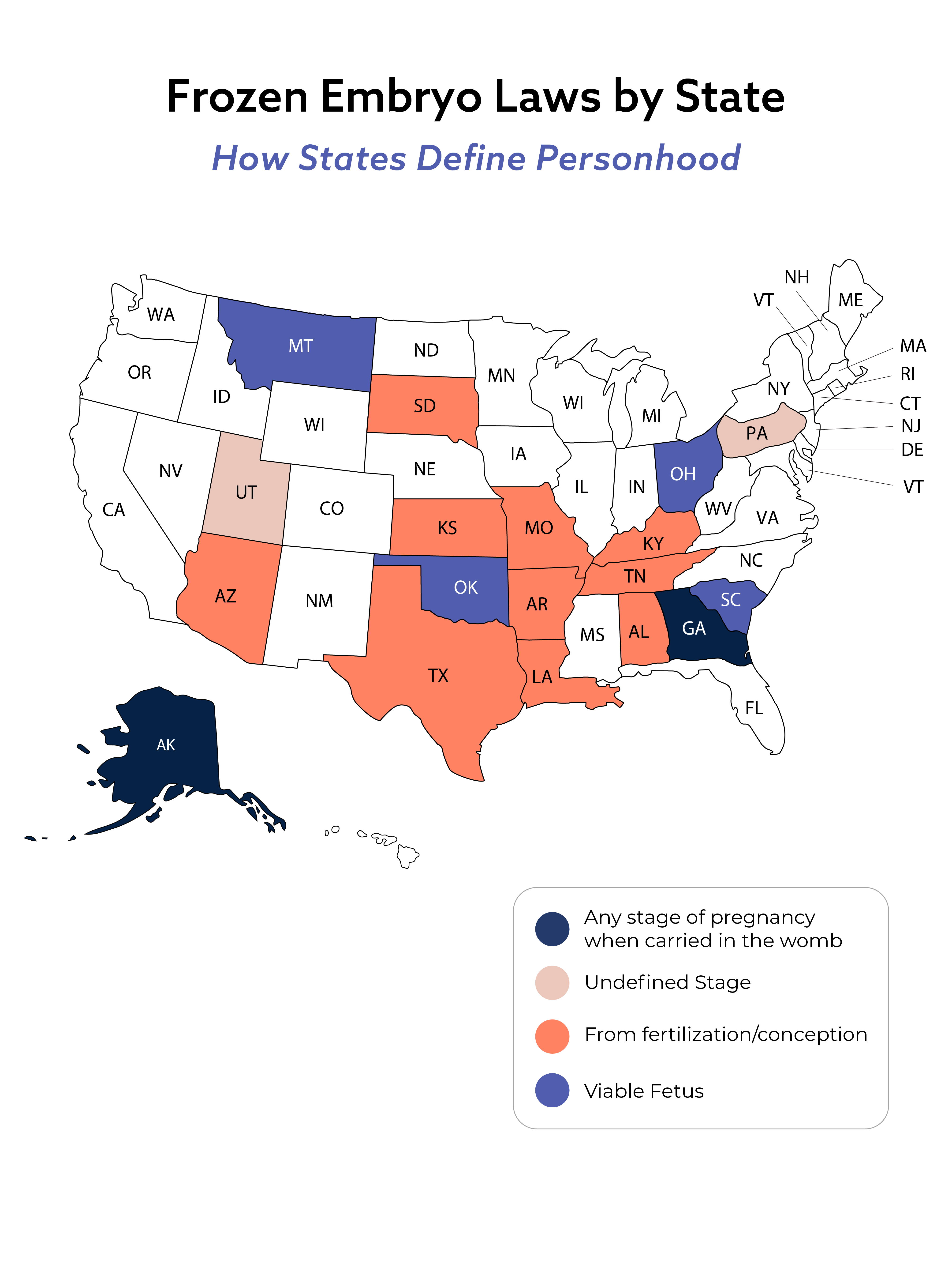In February 2024, the Alabama Supreme Court ruled that embryos created through in vitro fertilization (IVF) are considered children. As an intended parent who wants to build your family through surrogacy, it’s only natural to wonder what this could mean for laws on frozen embryos.
If you’d like to learn more about abortion laws and frozen embryos, then please fill out our online contact form at any time. We’re here to help you understand how this could affect your surrogacy journey.
Disclaimer: This article is meant to provide helpful information but should not be taken as legal advice.
Frozen Embryo Laws [What to Know]
As reported by Politico, more than a third of states say that fetuses are people. Even then, each state has a different definition of personhood:

The wording of some states’ laws would limit the abortion of a fetus, more so than the handling of a frozen embryo, as a viable fetus is typically defined as a stage of development around 22-24 weeks, where the fetus may be able to survive outside of the uterus. Some states do not define the stage of development and others specify stages of development when “carried in the womb.” These stages include:
Any stage of pregnancy when carried in the womb
- Alaska
- Georgia
Undefined stage
- Utah
- Pennsylvania
Viable fetus
- Oklahoma
- Ohio
- Montana
- South Carolina
States that have laws designating personhood beginning at fertilization or conception will be the ones that may affect IVF. Below are states which have restrictive laws about frozen embryos based on when an embryo is granted personhood:
From fertilization/conception
- Arizona
- Alabama
- Arizona
- Arkansas
- Kansas
- Kentucky
- Louisiana
- Missouri
- Tennessee
- South Dakota
- Texas
In the wake of the Alabama ruling, there are a lot of states trying to pass restrictive laws on IVF and personhood bills to have embryos considered living people. These frozen embryo laws in the United States could be dangerous in the case of accidental or intentional disposal of embryos in the lab, as some states could declare this accidental death or even homicide.
According to a report from Pregnancy Justice, 19 states either have broad personhood definitions, language that specifically mentions “unborn children” or case law that expands the definition of a child to include fetuses.
If you live in one of the states with frozen embryo laws then speak with us and we can connect you with a surrogacy attorney in your state, or contact the fertility clinic you’re working with. They will make sure that your surrogacy process can move forward in a safe, legal fashion.
Frozen Embryos and Abortion Laws
After the U.S. Supreme Court’s 2022 Dobbs v. Jackson Women’s Health Organization decision overturned national abortion rights, there has been a major increase in state legislatures presenting personhood bills. In the Alabama ruling, justices used anti-abortion language present in the Alabama Constitution to justify granting frozen embryos legal personhood.
When it comes to abortion laws and frozen embryos, they are now largely intertwined in the eyes of the law. Because some states want to recognize fetuses as living human beings, you’ll want to speak with the fertility clinic about how it addresses this particular ruling. It also depends on whether you live in one of the states which have restrictive laws about frozen embryos.
As you build your family through surrogacy, all you want is a safe, smooth and, of course, legal process. You can defer to our wide network of legal professionals when you contact us online today.